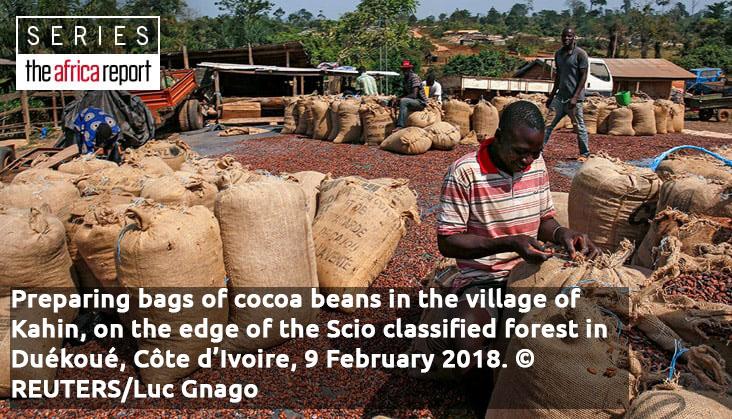Fitch predicts victory for Mahama in 2024 poll
April 18, 2024

Côte d’Ivoire and Ghana have engaged in a tug-of-war with North American and European chocolate industry giants to ensure a fair remuneration of their cocoa farmers. But can they bring about such changes, asks The Africa Report.
Behind the sweetness associated with chocolate lies the bitterness of the battle waged over cocoa.
Cultivated in the countries of the South, mainly in West Africa as well as in Latin and South America, the beans of this precious brown gold are mainly consumed in the North, on the European, American and Asian markets.
This results in an unbalanced distribution of revenues from the sale of bars and other sweets (confectionery, cakes, spreads, etc.). The final producers – multinational chocolate companies such as Lindt, Ferrero, Mars, Nestlé and Hershey’s – and the vendors – namely supermarkets – receive the bulk of the revenue generated by the sector, estimated at $130bn (€121.4bn) per year.
At the other end of the chain, in the cocoa-growing regions of Côte d’Ivoire and Ghana – the world’s largest and second largest producers of cocoa beans, respectively – farmers see only a small share of this revenue, less than 10% of the total. Although “fair trade” and “organic” certifications can marginally improve remuneration.
Abidjan and Accra have been struggling to change this situation since 2018, forming an alliance dubbed “the OPEC of cocoa”.
It’s objective: To correct the “injustice” suffered by farmers by increasing their income, which means making the rest of the sector, composed of a large number of players – grinders, exporters and traders in addition to the chocolate manufacturers and distributors already mentioned – pay more for cocoa.
Faced with a lack of significant progress, the tone toughened in 2022, with Côte d’Ivoire and Ghana even threatening to cut off access to plantations and suspend certification programmes, which are used by the entire industry to assure consumers that they are buying quality and sustainable chocolate.
This crisis is reminiscent of previous ones in the sector. In the late 1980s, Jean-Louis Gombeaud, Corinne Moutout and Stephen Smith’s book La Guerre du cacao – Histoire secrète d’un embargo (The Cocoa War – The Secret History of an Embargo) recalled the battle waged in 1988 by Ivorian president Houphouët-Boigny to bring the titans of the brown gold market to heel.
A few decades later, the names of some of the players have changed but the basic fight remains the same. And the offensive of the last few months led by Abidjan and Accra testifies to the fact that the “cocoa war” is more relevant than ever.
Can Côte d’Ivoire and Ghana succeed in their gamble and twist the arm of the sector’s global giants?
At a time when chocolate consumers seem to be increasingly sensitive to its origin and manufacturing conditions, is it possible to review how the sector functions?
Given the positions of the various parties, who can win the battle? Will chocolate ever be truly fair? Here are some answers in the next four reports.
This is the first of a 5-part article on Cocoa Wars by The Africa Report.
By Estelle Maussion
Share on: